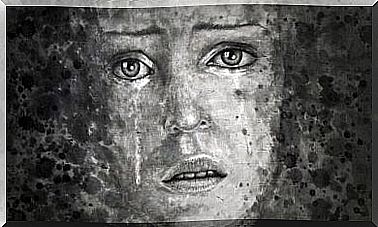Pistantrophobia: If You Experience Fear Of Trust

Most of us have experienced disappointment or betrayal in love at some point in our lives. And we have all experienced how difficult it is to trust someone who has wronged us again. Trusting itself is not an easy task, but when you also suffer from pisantrophobia, the fear of trusting, it can be almost impossible.
Trust is something you may or may not have: there is no in-between. It comes from months and years of shared relationships and experiences.
We know it takes a long time to earn trust, but it takes little to lose trust. However, they also say that the last thing we lose is hope and that time heals all wounds.
What is pistantrophobia?
Pistantrophobia is characterized by an irrational fear of building an intimate and personal relationship with another person. Past traumas or harmful experiences have been given so much weight that the fear outweighs the desire to trust others.
People with this condition begin to feel that sooner or later everyone will disappoint or betray them. They become extremely suspicious. They fear the idea that things that have harmed them in the past may repeat themselves and don’t want that to happen.

“Why does this always happen to me?” “I will never be happy.” “I am always alone.” These are some of the phrases they will repeat over and over in their heads. They want to give love and trust, but don’t feel it. In addition to distrust, they also feel disappointment, frustration, sadness, anger, guilt or generalized shame.
Behaviors that match the fear of trust
No one wants to feel pain, but when we lose our ability to trust, we lose the foundation of any interpersonal relationship. The consequences for people with fear of trust are not limited to emotions, but also extend to other aspects of their lives: their work, their families and their romantic relationships.
This leads to them becoming antisocial and shutting themselves off from the outside world. Some of the behaviors they exhibit are:
- Avoiding activities that require close contact with others.
- Withdraw for fear of criticism. There is an exaggerated fear of being judged, rejected, or betrayed.
- Not attending events or gatherings where they interact with strangers.
- Don’t take risks that could compromise their emotions. They are very reluctant to interact with other people. They are afraid to open up to others. For that reason, they sometimes seem lonely, introverted, reserved and sort of ‘hermits.’
- Trying to avoid intimate relationships for fear of being disappointed again. They don’t want a relationship anymore because of their fear that their trust will be misplaced again.
All of these consequences get worse as the person with the fear of trust becomes more emotionally involved with the other person.
A lack of self confidence
Normally, the problems with trusting others start with a lack of trust in yourself. This distrust directly affects the intuition or the sixth sense that indicates whether someone is trustworthy or not.
People with a fear of trust do not lack intuition in themselves; they just don’t trust it. Even though people without this phobia don’t always trust their intuition, they don’t panic when they are insecure. Then they trust their judgment, because that’s the only thing they can rely on.
This lack of confidence in our intuition often diminishes our confidence in our other abilities, such as defending ourselves if someone attacks us. So because we think we are defenseless, we will become even more suspicious. The phobia thus turns into an even bigger problem.
In this context, building relationships becomes a very difficult task. It’s like trying to climb a really high mountain while feeling dizzy. The fear of falling increases with every step we take, until we feel like we can’t move forward. That’s why many people with pistantrophobia cut off relationships abruptly. They can no longer continue to climb and deepen the relationship.

Therapy is the best step you can take
Trust doesn’t come back overnight. This applies to confidence in yourself as well as in others. That’s why it’s important to get help to overcome the fear of trust. Psychologists can help us heal our emotional wounds. Addressing the root cause will likely fix the problem.
- Going through a good processing process is vital if we want to regain trust. To do that, we must accept the pain we feel and not run away from our feelings. Nor should we minimize the problem or look the other way.
- It takes time and rest. Your emotions need to stabilize, so getting into a new relationship isn’t a good idea. You probably aren’t ready to trust someone again without experiencing trauma again.
- Practice everyday situations that require confidence. For example, delegate some things to your partner so that your confidence gradually increases. Do joint activities to reduce the condition.
Having faith in the other is not only a real challenge, but also an absolute necessity. The trust we have in our immediate environment has several advantages. It increases our happiness and self-confidence, so that we can cope with our problems better and with less stress. It’s definitely worth it.









